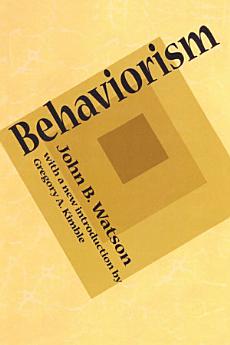Behaviorism
Acerca de este libro electrónico
Watson identified "laws" of learning, including frequency and recency. Kimble makes it perfectly clear that Watson's behaviorism, while deeply indebted to Ivan Pavlov, went beyond the Russian master in his treatment of cognition, language, and emotion. It becomes clear that Behaviorism is anything but the reductionist caricature it is often made out to be in the critical literature. For that reason alone, the work merits a wide reading.
Behaviorism, as was typical of the psychology of the time, offered a wide array of applications all of which can be said to fall on the enlightened side of the ledger. At a time of mixed messages, Watson argued against child beating and abuse, for patterns of enlightened techniques of factory management, and for curing the sick and isolating the small cadre of criminals not subject to correction. And anticipating Thomas Szasz, he argued against a doctrine of strictly mental diseases, and for a close scrutiny of behavioral illness and disturbances. Kimble's brilliant introduction to Watson ends with a challenge to subjectivism to provide evidence that Watson's behaviorism cannot explain human actions without introspective notions of the mind. This genuine classic of social science hi our century remains relevant not just for the conduct of psychological research, but for studies in the philosophy of science and the sociology of knowledge.





